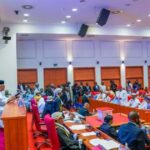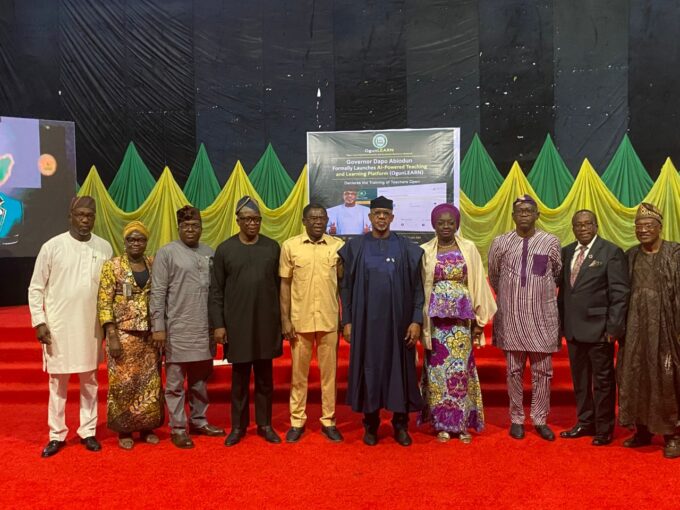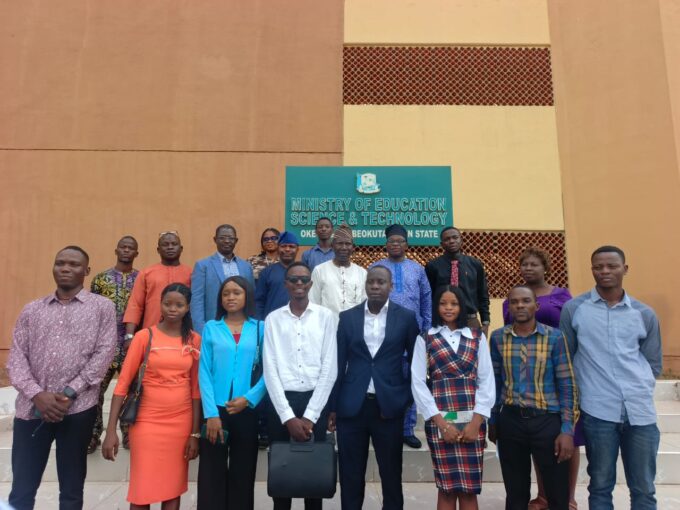… 28 Million Children Lack Access To Basic Or Digital Education, Agency Warns
…Country Could Earn $15bn Yearly By 2030 With Timely Investment
Daud Olatunji
Nigeria may forfeit its place in a fast-growing $130 billion global digital skills economy unless it urgently expands investments in technology-driven education for its young population, the United Nations Children’s Fund (UNICEF) has warned.
Speaking at a two-day media dialogue on digital learning organised by the Oyo State Ministry of Information in partnership with UNICEF, the Chief of UNICEF Lagos Field Office, Celine Lafoucriere, said the country stands to earn more than $15 billion annually by 2030 if it equips its youths with the digital competence demanded by the future workforce.

But despite this opportunity, she disclosed alarming figures that over 10 million primary school children and another 18 million secondary school learners are currently out of school, leaving more than 28 million children without access to formal or digital education.
“This means millions of young Nigerians are entering adulthood without the skills needed to function in the modern world,” she said. “Even more troubling is that 15 out of every 100 girls are neither in school, nor learning a skill, nor employed.”
Lafoucriere warned that Nigeria’s projected 126 million children and adolescents by 2030—the largest youth population in Africa—could either be the country’s greatest asset or biggest liability depending on how quickly it closes the digital gap.
Despite the grim statistics, she noted significant progress. More than two million children across 21 states, including 300,000 in the Southwest, are already using the Nigerian Learning Passport, while more than 62,000 girls have completed digital skills courses supported by UNICEF.
She urged the media to play a stronger advocacy role in reshaping public conversations around digital literacy, highlighting success stories, correcting misconceptions about technology access, and demanding sustained government commitment.
UNICEF Education Specialist, Babagana Aminu,who delivered a paper on the digital skills crisis in Nigeria, said Nigeria cannot afford to lag behind in a world where Africa must create 68 million new jobs by 2030, with Nigeria accounting for a quarter of the burden.
He warned that 85 percent of Nigerians remain unemployed or underemployed because they lack digital competence, describing digital literacy as “a national survival strategy, not an option.”
“By 2030, 60 percent of Nigerians will be under 35,” he said. “Yet millions lack the digital and financial skills to survive in an economy that is being transformed by artificial intelligence.”
Aminu dismissed fears that AI would wipe out jobs, arguing instead that those who embrace technology will replace those who do not.
“It is not AI that will replace people,” he said. “It is people who understand AI who will replace those who don’t.”
He identified emerging platforms empowering Nigerian youths, including YOMA, GenU 9ja, the Nigerian Learning Passport, and Microsoft-backed programmes, and called for cybersecurity to be introduced into the secondary school curriculum.
The Oyo State Ministry of Information Permanent Secretary, Rotimi Babalola, reaffirmed the state government’s commitment to expanding technology-enabled learning, describing digital literacy as “a non-negotiable pathway to Nigeria’s economic future.”
Officials from the Lagos State Ministry of Basic Education, represented by Mr. Martins Opeyemi, said the state has made significant investments in teacher training and AI integration in schools under Governor Babajide Sanwo-Olu’s THEMES agenda.
He said Lagos’ digitalisation efforts now allow learning to continue even in hard-to-reach communities.
Teachers and students of Army Children’s Senior School, Epe, shared testimonies of how digital learning tools have improved their creativity, speed and access to global knowledge resources.
They emphasised the need for government to provide devices, internet access and digital mentorship, especially in underserved communities.
Experts at the dialogue agreed that if Nigeria aggressively invests in digital education, the country could earn over $15 billion annually, lift millions out of poverty and become a continental leader in the future of work.
But failure to act, UNICEF warned, could push millions deeper into unemployment and shut Nigeria out of the rapidly expanding $130 billion global digital skills market.
Speaking, the Permanent Secretary of the Oyo State Ministry of Information, Rotimi Babalola lauded the efforts of UNICEF in partnering with the government in achieving a better society.
Babalola explained that digital education and skills are crucial in attaining the Sustainable Development Goal 4 which is to ensure inclusive and quality education, hence the need for youths to be adequately equipped.
In his remarks, the Director of Planning,Policy, Research and Statistics, Lagos State Ministry of Basic and Secondary Education, Martins Opeyemi, said the present administration in the state has included the digital learning in the school curriculum for the children to be exposed to the skills and opportunities early.
Also speaking, a Deputy Director at the Lagos State Universal Basic Education Board, Daudu Olusola said investment in the sector by the government has improved digital learning in schools across the state.
Do you want to share a story with us? Do you want to advertise with us? Do you need publicity for a product, service, or event? Contact us on WhatsApp +2348183319097 Email: platformtimes@gmail.com
We are committed to impactful investigative journalism for human interest and social justice. Your donation will help us tell more stories. Kindly donate any amount HERE





















Leave a comment